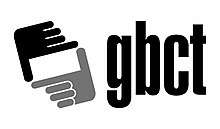Guild of British Camera Technicians
The Guild of British Camera Technicians (abbreviated to GBCT) is a not for profit organisation that represents knowledgeable, qualified and craft trained camera technicians working in film and high end television production around the world. The stated aim of the GBCT is to promote “The care and quality of cinematography through progress and innovation” There are currently around 450 members of the GBCT many of whom are members of other moving image craft organisations such as the British Society of Cinematographers and the Association of Camera Operators. The GBCT is currently based within the Panavision London offices.
 | |
| Founded | 1977 |
|---|---|
| Founder | Terry Cole, John Deaton, Mike Fox, Geoff Glover |
| Type | Professional Guild |
| Focus | The care and quality of cinematography through progress and innovation |
| Location |
|
Members | 450 |
Key people | Chairman - Tim Potter Guild Admin - Deanne Edwards |
| Website | www |
Affiliations
As a member of the Cine Guilds of Great Britain[1] (CGGB), the GBCT does not act as a trade union. The relevant trade union for UK members is the Broadcasting, Entertainment, Communications and Theatre Union (BECTU). Other members of the CGGB include the British Society of Cinematographers (BSC), the society of British Film Editors (BFE) and the British Film Designers Guild (BFDG).
In 2011 the GBCT joined with the BSC, GBFTE and BECTU to form a not for profit collecting society - Screen Craft Rights [2]- to receive copyright payments from sales of film and TV productions to Finland, Germany, Norway and Sweden and distribute them to UK cinematographers, designers and editors.
On 12th May 2020 the GBCT was one of four signatories on a statement related to Covid-19 safer working practices. Other signatories were the BSC, ACO and BECTU Camerabranch.[3]
The GBCT has a long-standing affiliation with the University of Arts London through the UAL Diploma provision.[4]
Camera craft
Professionals in the industry have long recognised the importance of camera craft to finished films and television programmes, with specific awards for cinematography from the Academy of Motion Picture Arts and Sciences the British Academy of Film and Television Arts as well as more craft specific awards such as The Operators Award,[5] organised by the GBCT, the BSC and the Association of Camera Operators as well the Guild of Television Camera Professionals Awards for Excellence in Camerawork.
Through the stated aims of the GBCT and the rigorous membership process, the craft of camerawork is upheld by the membership and hence the UK film industry as a whole, which "in 2019 also saw the second-highest level of spend by international filmmakers ever recorded, reaching £1.77 billion".
History
The Guild, as it is known colloquially among members and the industry, was formed in 1977 by focus pullers Terry Cole and John Deaton and camera operators Mike Fox and Geoff Glover who wanted to create a non-political association with an authoritative presence in the industry. Their intention was to create an organisation that protected the interests and aspirations of a growing freelance workforce while developing new talent and maintaining the best and highest standards – to promote the technicians who are "The best of the best".[6]
Trustees
The GBCT has 6 eminent trustees drawn from the moving image industry who monitor its constitution which lays out very clearly the role of the GBCT; The current trustees are:
Founding Trustee: Sir Sydney Samuelson CBE
Producer/Director: Michael Apted
Producer: Steve Clark Hall
Producer/Director: Richard Lester
Cinematographer: Phil Méheux
Director: Joe Wright
Membership
Members work with and within the camera department, including roles such as grips and script supervisor and specialist technicians for visual effects, aerial and underwater filming. To be accepted for membership they would have to be nominated by four existing members before their nomination is sent to the membership committee. If the committee approve the application then the GBCT Board, made up of the Chairperson and thirteen members of the GBCT, will then scrutinise and discuss the application before deciding whether or not that person can become a member.
Members could be working in a number of grades including (but not exclusive to) clapper loader, focus puller, camera operator, digital imaging technician, and director of photography/cinematographer.
Membership grades
FULL: This category is specifically for current practitioners living in the UK and Eire
OVERSEAS MEMBERSHIP: This category is open to British technicians resident outside the UK, or non-British technicians who work regularly in the UK
ASSOCIATES: Associate Members are individuals closely affiliated to the GBCT and its activities
TRAINEES: Membership services and facilities is provided to Guild Trainees for the duration of their time as trainees
RETIRED MEMBERS: This section is only available to existing Guild Members
HONORARY: Honorary Membership is awarded to individuals who have been instrumental in helping to support the Guild in some form or other and/or by enhancing its standing within the industry. Members in this category include the founders of the GBCT, Remi Adefarasin OBE BSC, Angela Allen OBE and Chris Menges BSC, ASC.
Publications
The GBCT Crew Directory[7] has been published annually since 1980. It is supplied to members and distributed to production companies and personnel. Between 1980 and 2000 the GBCT published "Eyepiece"[8] on a bi-monthly basis and has a regular feature, written by members, for the BSC publication under the title "GBCT News".[9]
The GBCT is preparing for publication the "Guild Glossary" and "Specialist FAQ Sheets".The glossary is intended as a series of short articles exploring terms used by camera people in the motion picture industry. Some of these terms are common and widely understood, some are more unusual and sometimes cause confusion. Some of the entries will be highly technical, others more light hearted.
The GBCT’s FAQ Sheets are being designed and written by Guild Members who have additional specialist skills in camera, including aerial cinematography, underwater camera, shooting VFX and traditional methods for shooting miniatures.
Training and education
One of the most significant areas of work for the GBCT is training and the maintenance of standards. This has included work with the sector skills council ScreenSkills[10] to provide training for military veterans.[11]
GBCT Camera Trainee Programme
The "GBCT Camera Trainee Programme" is aimed at technicians wanting to work in high-end fiction production.[12] The programme uses existing practitioners' experience and knowledge to provide training and mentorship to trainees who are placed on productions including feature films, TV drama and commercials. After their two-year programme is complete, these trainees can move on to working as a clapper loader, some choose to work as DIT while others might move into the electrical or grip departments.
GBCT and UAL Diplomas
The GBCT and its members have worked with University of the Arts London to design, develop and deliver a series of accredited qualifications for the camera department that blend academic knowledge with vocational skills. The courses provide essential CPD for camera technicians. The courses include Level 2: Clapper Loading/2nd Assistant Camera; Level 3: Focus Pulling/1st Assistant Camera[13]; Level 2: Grips and Level 3: Key Grips[14]. The courses are financed by ScreenSkills.
GBCT and the Mark Milsome Foundation
Within the GBCT Camera Trainee Programme is one trainee who has been selected to be the Mark Milsome Trainee.[15] This is a placement assisted by the Mark Milsome Foundation, an organisation set up in honour of camera operator Mark Milsome who lost his life while working on a drama in Ghana in November 2017.[16] Members of the film industry worldwide contributed to the fund that has helped the foundation's work.[17]
Post nominal
While it is not a requirement for members to use the letters 'GBCT' after their name, it is encouraged that they do so in common with organisations such as the BSC, the American Society of Cinematographers and the Directors Guild of America.
References
- "CGGB- Home". www.cineguilds.org. Retrieved 2020-05-12.
- "SCR - HOME". www.screencraftrights.org. Retrieved 2020-05-11.
- "News | British Society of Cinematographers". bscine.com. Retrieved 2020-05-13.
- UAL (2019-03-08). "Film suite". UAL. Retrieved 2020-05-26.
- "Home-Abi". The Operators Award. Retrieved 2020-05-27.
- "The Guild of British Camera Technicians - Greenford - Home". gbct. Retrieved 2020-05-11.
- "Crew directory. - British Library". explore.bl.uk. Retrieved 2020-05-11.
- "Eyepiece : journal of the Guild of British Camera Technicians. - British Library". explore.bl.uk. Retrieved 2020-05-11.
- "Tim Potter GBCT 'Taxing times'". British Cinematographer. 2017-05-24. Retrieved 2020-05-11.
- ScreenSkills. "Careers, jobs and skills training in film, TV, VFX, animation, and games". ScreenSkills. Retrieved 2020-05-12.
- ScreenSkills. "Grips for Heroes introductory held in Yorkshire and Wiltshire". ScreenSkills. Retrieved 2020-05-11.
- "TRAINEES". gbct. Retrieved 2020-05-11.
- UAL (2020-04-01). "Clapper Loaders and Focus Pullers". UAL. Retrieved 2020-05-26.
- UAL (2020-04-01). "Grips and Crane Technicians". UAL. Retrieved 2020-05-26.
- "Mark Milsome Foundation". Mark Milsome Foundation. Retrieved 2020-05-11.
- "Camera operator dies filming BBC drama". BBC News. 20 November 2017. Retrieved 29 May 2020.
- "Tragic cameraman's cause backed by stars". BBC News. 2018-11-22. Retrieved 2020-05-11.
